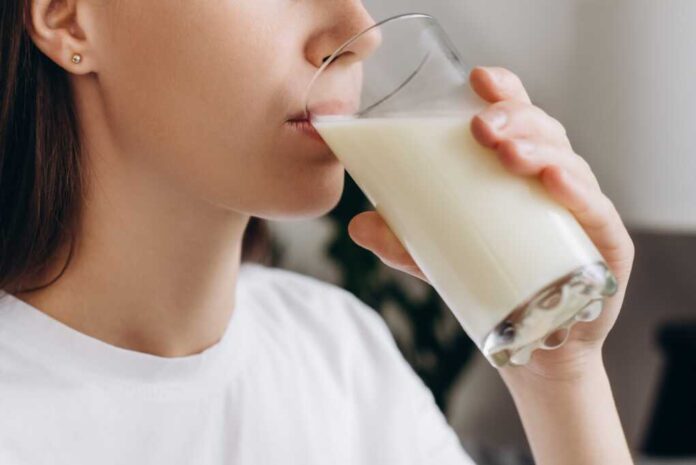
Soy milk, a humble staple of plant-based diets, is making headlines for its remarkable ability to curb hot flashes.
Story Snapshot
- Soy milk, rich in plant proteins and isoflavones, is now clinically proven to reduce hot flashes by up to 84%.
- The WAVS trial, led by Dr. Neal Barnard, confirmed soy’s effectiveness as a natural alternative to hormone therapy.
- Dietitians and researchers now recommend soy milk as part of daily dietary strategies for menopause management.
- Experts urge continued research but agree food-based interventions empower women and cut healthcare costs.
Soy Milk Steps Into the Spotlight as Natural Hot Flash Relief
Hot flashes have long plagued American women entering menopause, with nearly 80% experiencing this disruptive symptom. For decades, hormone replacement therapy was the standard solution, but mounting concerns over cancer and heart risks left many searching for safer alternatives. Soy milk, packed with phytoestrogens called isoflavones, is now being recognized as a powerful, natural ally in the fight against menopausal discomfort. Recent research has brought soy milk to the forefront, not as a supplement or pill, but as a simple daily beverage that can be easily incorporated into American diets.
The turning point came in 2021, when the WAVS trial—an independent, randomized controlled study—published groundbreaking findings: women following a low-fat, plant-based diet that included a daily serving of soy milk saw a staggering 84% reduction in moderate-to-severe hot flashes. This research, led by Dr. Neal Barnard and his colleagues at the Physicians Committee for Responsible Medicine, was published in the reputable journal Menopause and has since been widely cited by both the medical community and mainstream media. The scale and rigor of the WAVS trial have made it a touchstone for clinicians eager to offer non-pharmaceutical guidance to patients navigating menopause.
Watch: Struggling with Hot Flashes? These Foods Help Naturally (Even Without HRT)
Clinical Evidence and Dietary Guidance
Kelly Plowe, M.S., RD, who reviewed the original article, highlights that soy milk is not only safe, but also provides additional benefits for bone health—a critical concern for women in midlife. Lisa Andrews, M.Ed., RD, LD, adds that the phytoestrogens in soy can be especially effective when consumed as part of a whole-foods, plant-based diet, as opposed to isolated supplements. This aligns with observational studies showing that Asian populations, with naturally high soy food intake, experience far fewer menopausal symptoms than their Western counterparts.
The impact of these findings extends beyond individual symptom relief. With soy milk now recommended as a central component in holistic menopause management, the food industry is responding to increased demand for plant-based, protein-rich beverages.
Shifting the Approach to Menopause: Economic and Social Implications
The shift toward soy milk and plant-based diets could yield significant benefits for American healthcare and families alike. Reducing dependence on hormone replacement therapy not only lowers the risk of adverse side effects but may also cut healthcare spending tied to pharmaceuticals and menopause-related complications. Empowering women with evidence-based, natural interventions aligns with the conservative principle of individual responsibility—giving women the tools to manage their health without unnecessary government or pharmaceutical intervention. As more families embrace soy milk and similar dietary choices, the broader economy may see growth in the plant-based food sector, spurred by consumer demand for practical, research-backed solutions.
Expert Consensus and Future Directions
Dr. Neal Barnard has called the WAVS trial a “game changer” for women’s health, and the North American Menopause Society has validated the study’s methodology and findings. The integration of soy milk into dietary recommendations marks a significant evolution in women’s healthcare, moving away from pharmaceutical dependence and toward food-based, self-directed solutions rooted in common sense and proven science. As more women and clinicians embrace this approach, ongoing studies will further clarify the best dietary patterns and identify any remaining factors that influence individual response.
Sources:
Physicians Committee for Responsible Medicine, “Study Shows Diet Causes 84% Drop in Troublesome Menopausal Symptoms—without Drugs,” 2021
Barnard ND, et al. “The Women’s Study for the Alleviation of Vasomotor Symptoms (WAVS): A Randomized, Controlled Trial,” Menopause, 2021
Physicians Committee for Responsible Medicine, “Fighting Hot Flashes With Diet,” 2021
North American Menopause Society, Press Release


















